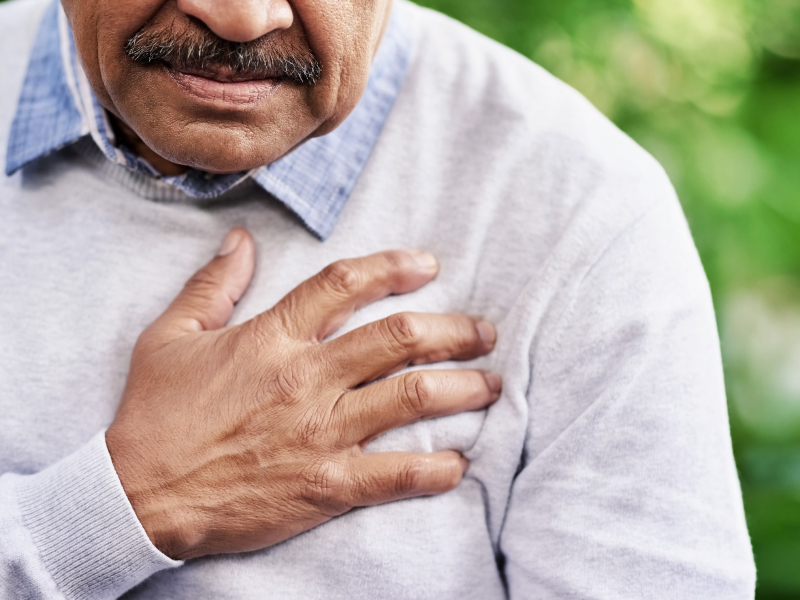Your health is your most valuable asset, and recognizing the early warning signs of a heart attack or stroke can be life-saving. These medical emergencies require immediate attention, and calling 911 without delay can significantly improve your chances of survival and recovery. Understanding the symptoms and acting swiftly is crucial in reducing long-term damage and increasing positive outcomes.

Why Immediate Action Matters
Heart attacks and strokes are both time-sensitive emergencies. According to Bayhealth Interventional Cardiologist Dr. Roberto Scaffidi and Vascular Neurologist Dr. Ali Sheharyar, the key to minimizing damage lies in seeking immediate medical attention. Delaying treatment can cause irreversible harm to the heart muscle or brain.
Heart attacks are caused by blocked blood flow to the heart, while strokes occur when blood flow to the brain is interrupted. Since both conditions involve oxygen deprivation to vital organs, prompt care is essential to prevent serious complications or death.
Understanding Heart Attacks
What Causes a Heart Attack?
A heart attack occurs when blood flow to the heart muscle is obstructed, usually by a blood clot or fatty deposits in the arteries. This blockage deprives the heart of oxygen, potentially leading to severe damage or death if untreated.
Common Signs of a Heart Attack
Heart attack symptoms can vary between individuals, and some signs may be more subtle than others. Key warning signs include:
- Chest Pain or Discomfort: Often described as pressure, tightness, or heaviness that may radiate to the jaw, shoulder, or arms.
- Shortness of Breath: Difficulty breathing even without exertion.
- Nausea or Indigestion: Feeling nauseous or experiencing stomach discomfort, especially in women and diabetics.
- Dizziness or Lightheadedness: A sudden sense of unsteadiness or fainting sensation.
- Cold Sweat: Profuse sweating without an apparent cause.
- Numbness or Tingling: Particularly in the arms or hands.
Heart Attack Symptoms in Women
Women may experience atypical symptoms such as extreme fatigue, nausea, or back pain rather than the classic chest pain. This makes it crucial for women to recognize these less obvious warning signs.
Understanding Strokes
What Causes a Stroke?
A stroke occurs when blood supply to the brain is interrupted by a blocked or burst blood vessel. Without oxygen-rich blood, brain cells begin to die rapidly.
Recognizing Stroke Symptoms with BEFAST
The acronym BEFAST is an effective way to remember stroke warning signs:
- Balance: Sudden loss of balance or coordination.
- Eyes: Sudden blurred, double vision, or loss of vision in one or both eyes.
- Face Drooping: One side of the face may droop, or the smile may appear uneven.
- Arm Weakness: One arm may feel weak, numb, or drift downward when both are raised.
- Speech Difficulty: Slurred or incoherent speech, or difficulty understanding language.
- Time to Call 911: If you observe any of these symptoms, act quickly and seek emergency care immediately.
Why Quick Action is Crucial for Stroke Victims
Dr. Sheharyar emphasizes that in the event of a stroke, every minute matters. For every minute without restored blood flow, nearly 2 million brain cells are lost. Immediate medical care is vital to improving survival rates and minimizing brain damage.
What to Do in a Medical Emergency
In both heart attack and stroke cases, time is the most critical factor. If you or someone nearby is showing signs of these emergencies:
- Call 911 Immediately: Don’t attempt to drive yourself or others to the hospital. Emergency responders can provide critical care on the way to the hospital.
- Stay Calm: Keeping calm can help stabilize the person until help arrives.
- Administer CPR if Needed: If the person becomes unconscious and stops breathing, perform CPR until emergency medical services arrive.
Preventing Heart Attacks and Strokes
While some risk factors like age and genetics are unavoidable, adopting healthy lifestyle habits can greatly reduce your risk. Here are some preventive measures:
- Maintain a Balanced Diet: Focus on fruits, vegetables, whole grains, and lean proteins.
- Exercise Regularly: Engage in at least 30 minutes of physical activity most days of the week.
- Monitor Blood Pressure and Cholesterol: Regular check-ups can detect potential problems early.
- Quit Smoking: Smoking significantly increases heart disease and stroke risks.
- Manage Stress: Incorporate relaxation techniques such as meditation, yoga, or deep breathing exercises.
Frequently Asked Questions:
1. What should I do if I suspect I’m having a heart attack?
If you believe you’re experiencing heart attack symptoms, call 911 immediately. Avoid waiting to see if symptoms improve on their own. Quick medical intervention can reduce heart damage and save your life.
2. Are heart attack symptoms different for men and women?
Yes, women often experience less typical symptoms like fatigue, nausea, or dizziness, making it harder to identify a heart attack. Always seek medical attention if you feel unwell.
3. How long do stroke symptoms last before damage becomes permanent?
Stroke symptoms can cause permanent damage within minutes. The faster you receive medical care, the better your chances for recovery.
4. Why shouldn’t I drive myself to the hospital during a heart attack or stroke?
Emergency medical professionals provide life-saving care on the way to the hospital, ensuring you receive treatment as quickly as possible. Driving yourself may cause delays and worsen your condition.
5. Can lifestyle changes help prevent heart attacks and strokes?
Yes, adopting a healthy diet, exercising regularly, and quitting smoking are key strategies to reduce your risk of both conditions.




